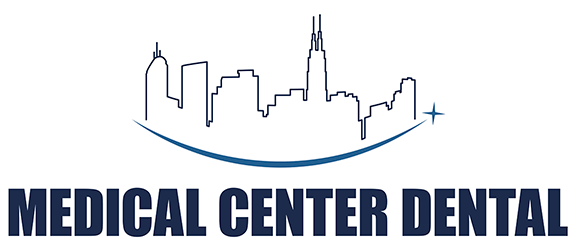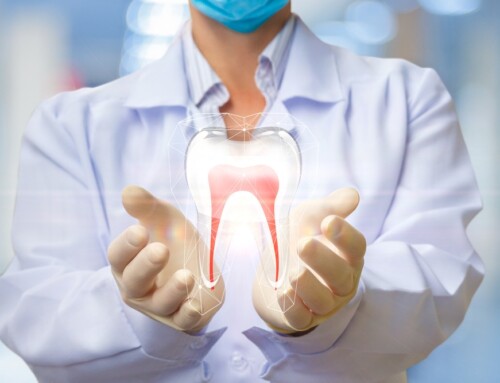Health Diseases Detected by Dental Exams
Regular visits to the dentist are necessary to maintain excellent oral hygiene. Although most of the work is done at home with twice-daily brushing and daily flossing, your dentist can head off problems that are not easy to discover at home. Even if you are not experiencing any obvious symptoms of dental health problems, it is important to schedule regular cleaning and examination appointments with your dentist.
In addition to discovering and correcting any potential dental health problems, your dentist can also potentially detect other diseases in the body that cause symptoms in the mouth. The connection between systemic health and dental health has been well-studied, and researchers learn more information every day. Just as dental conditions can indicate problems elsewhere in the body, continually neglecting your oral health can also lead to disease development elsewhere.
How Oral Health Detects System Health Concerns
The importance of regular dental exams should not be underestimated. Many patients visit the dentist to keep oral health in check, but the dentist can sometimes find evidence of systemic concerns during an examination. Although your teeth’ state may not be the cause of your health condition, dental problems can be one of the indicating factors for more exploration from your primary care physician.
- Diabetes. Poorly controlled or undiagnosed diabetes can lead to several signs in the mouth, such as bleeding gums, dry mouth, and teeth that become loose without trauma. Even a symptom as common as bad breath can be a sign of this condition. Diabetes can also lead to more difficulty fighting off infections and healing wounds. Although these signs do not always point to diabetes, it is worth a follow-up with your primary care provider.
- Osteoporosis. Although women over a certain age are more prone to osteoporosis, some bone density loss signs show up in the mouth. A receding gum line or loose teeth may mean the bones in the jaw are no longer as supportive as they should be. During a regularly scheduled annual cleaning, your dentist may take an x-ray to view the condition of the teeth in the jaw. During a dental x-ray, signs of bone loss may be spotted, and a test for bone density levels through your doctor should be the next step.
- Human Immunodeficiency Virus. Lesions in the mouth or swollen salivary glands can be symptoms of HIV. HIV patients also suffer from other oral conditions such as gingivitis and herpes simplex flare-ups due to the body’s difficulty fighting off infections. These symptoms all occur without HIV infection, but it is always a good idea to check in with a physician if a dentist observes them.
- Cancer. During a routine check-up, the dentist may have you perform several different movements with your mouth. Many observations are made during a visual and physical examination to check for oral cancer. If oral cancer is suspected, the dentist can perform a more in-depth screening to follow up. Many cases of oral cancer appear as legions on the palate, tongue, or other soft parts of the mouth and can be red or white in color.
- Heart problems. When a patient complains of jaw pain, combined with other symptoms, it could be indicative of heart disease. Sometimes an impending heart attack produces pain that radiates to the jaw, so seeking help immediately is necessary.
- Chronic stress. Individuals who are chronically stressed may have a harder time fighting off infections, and that included sores or infections in the mouth. Another dental problem that stems from chronic stress is teeth grinding. A dentist can determine if a patient grinds the teeth regularly by examining the wear on the flat surfaces.
- Eating disorders. Whether the patient is chronically undernourished or vomits frequently, an eating disorder can have disastrous effects on tooth enamel.
How Dental Exams Help System Health
Although many medical conditions can be discovered through careful dental examination, the reverse is also true. Poor dental hygiene can also lead to illnesses that affect the entire body. One of the most discussed connections is between dental health and heart disease. Gum disease or infections in the mouth can cause full-body inflammation, which is stressful to the heart. An infection that is left untreated can also spread in the body, eventually leading to endocarditis. Although the connection between heart disease, body inflammation, and oral health is still avidly studied, it is important to realize that your mouth does not exist on its own. Poor conditions in the mouth can lead to poor conditions elsewhere in the body.
How To Prevent Health Conditions Stemming From Poor Oral Health
Although there is no guarantee that you won’t develop any of the health conditions linked to dental health, you can take a few important steps to keep your oral hygiene in check and reduce your risk.
- Brush and floss. The recommendation to floss daily and brush at least twice a day does not change as you age. It is important to brush for a long enough time to remove any debris in the mouth and reach all surfaces, which is typically two minutes. Pushing down too hard on the toothbrush can cause excess wear, so be gentle but thorough. Don’t forget to brush your gum line to remove additional build-up.
- Keep a healthy diet. As a child, you likely learned to avoid sugary foods and eat foods that provide nutrients. This advice should be carried throughout your life to maintain healthy teeth and gums.
- Reduce your vices. The healthiest mouths come from those who limit alcohol and avoid tobacco products completely.
- Visit your dentist. Regularly scheduled cleanings and visits to the dentist any time you show symptoms of dental issues are key components of maintaining excellent oral health.
Schedule a Dental Health Consultation
Regular dental care is essential to a healthy mouth. Ingenious Dentistry provides excellent service and care to Houston, TX area patients who want to maintain dental health and try to avoid many of the effects of poor oral hygiene. Since your oral health is linked to your overall health in many ways, it’s important to maintain a relationship with an experienced dental team for the most benefits. To schedule a consultation for a specific concern or come in for a routine visit for a cleaning and examination, contact us online or call (713) 795-5905 for an appointment.
_________________________________________________________
_________________________________________________________
Image Credit: Shutterstock / ilu ros






